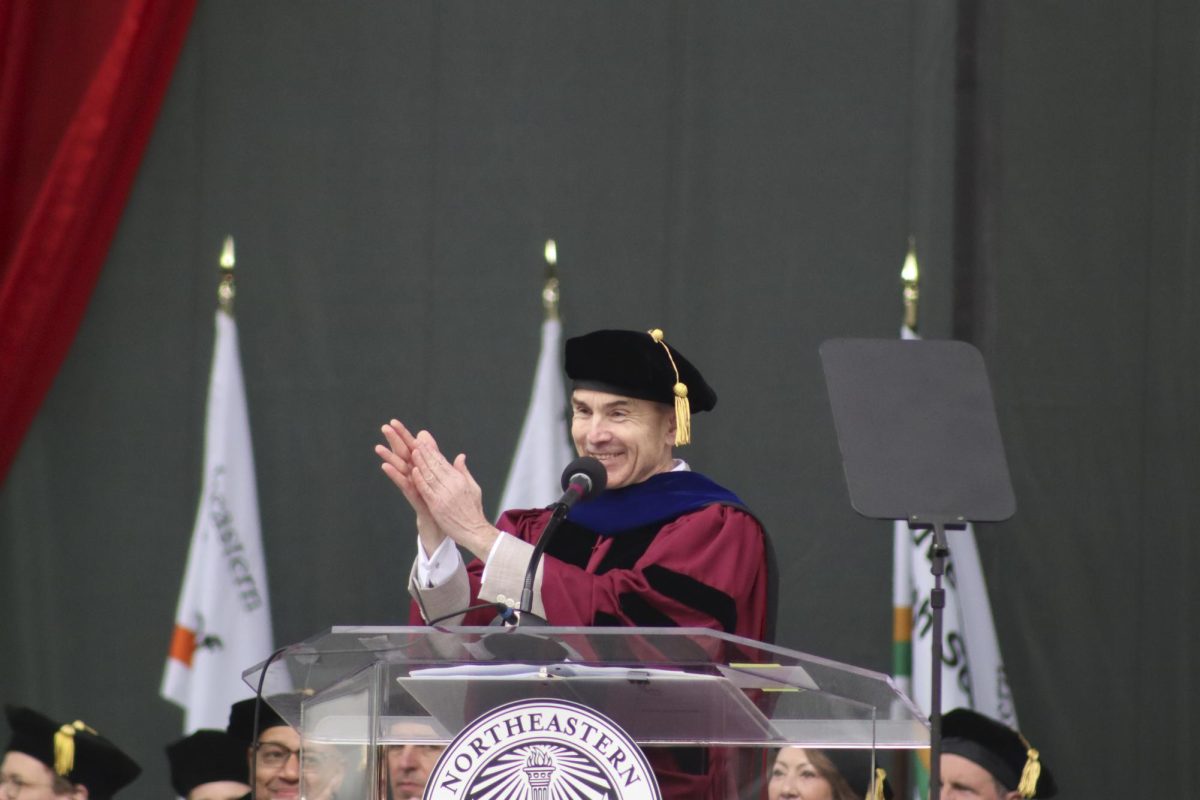 by Katie Robidoux, News Correspondent
by Katie Robidoux, News Correspondent
The Faculty Senate convened Wednesday to discuss changes to their policies, as well as Northeastern’s facilities and admissions processes.
Louis Kruger, the chair of the Senate Agenda Committee for this academic year as elected this past spring, said he hopes this year can further the progress Northeastern has made as a university in recent years, like the rise in the U.S. News and World Report rankings, and the Faculty Senate is the force that will drive these improvements.
“When I think of the importance of shared governance, and putting the emphasis on shared, there’s a partnership here between faculty and administration,” he said. “That’s so important, and the Senate is at the heart of that partnership.”
At the meeting, Kruger outlined his committee’s priority list for the upcoming year.
Among the list of priorities was the Senate Agenda Committee’s plan to complete the updates on the Faculty Senate handbook and hold a vote on the updated handbook, establish the definition of shared governance between the faculty and administration at the university and to strengthen the Senate’s involvement in major academic initiatives and policies.
Kruger also discussed the priority to “assess the university’s commitment to diversity, and reaffirm it as a core value of the university.”
Another priority on the list was to improve the implementation of TRACE, the teacher rating and course evaluation process. Kruger discussed plans to improve the return rates of course evaluations.
He also mentioned the foreseen importance of this year’s athletics committee, which has been staffed and “charged to assist in the NCAA re-certification process. It will be a very important committee this year.”
Provost Stephen W. Director also discussed in front of the committee changes already made by Northeastern in recent years and those that are planned to be made in the future.
For example, the percentage of admission acceptance has gone down in recent years, from around 40 percent to 34 percent. Director stated his plan to bring this down even further.
“Excellence doesn’t happen by accident, it is created by design,” he said.
Another priority on the list was to improve the implementation of the teacher rating and course evaluation process, known as TRACE. Kruger discussed plans to improve the return rates of course evaluations.
He said the foreseen importance of this year’s athletics committee, which has been staffed and “charged to assist in the NCAA re-certification process. It will be a very important committee this year.”
Last year, the senate overwhelmingly voted in favor to divide the College of Arts and Sciences into three smaller colleges, which now exist separately as the College of Arts, Media and Design, the College of Social Sciences and Humanities, and the College of Science.
The Faculty Senate is comprised of 40 faculty members and administrators, 30 of whom are elected senators from each of the different colleges. The amount of representation each college has in the Senate is proportional to how big the college is itself.
“Although some of us are faculty, and others are administrators, we are all Huskies at heart,” Kruger said.








